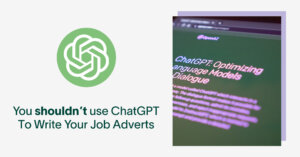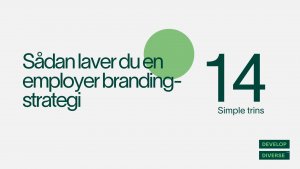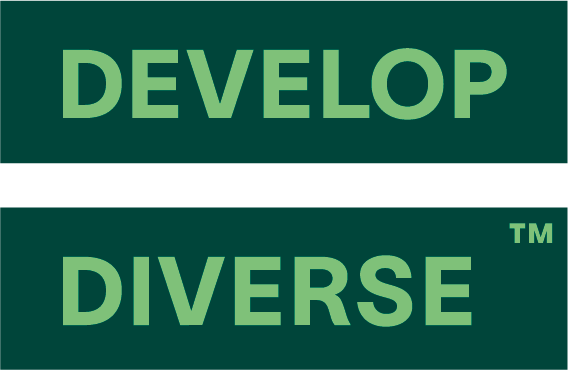While Muslims celebrate multiple holy events throughout the year, Ramadan maintains its place as a very special month, where Muslims worldwide participate in the well-known event of fasting from dawn till dusk for 29-30 days.
It is important to create an inclusive workplace for Muslims during Ramadan. And the best way to make the workplace inclusive is by celebrating Ramadan with them. So, how to celebrate Ramadan at work?
You can celebrate Ramadan at work by acknowledging Ramadan and discussing flexible work hours to respect their fasting schedule. Be understanding of fluctuating energy levels throughout the day. Allow prayer breaks during work hours, and consider work-from-home options. Show sensitivity when scheduling events that involve food or occur late in the day. Celebrate by offering a potluck-style iftar (fast-breaking meal) with dates and drinks. Finally, show flexibility regarding Eid al-Fitr, the holiday following Ramadan, as its date can vary based on the lunar calendar.
What is Ramadan?
From sunrise, Muslims abstain from eating and drinking (yes, that includes drinking water) in exchange for spiritual feeding (worship); and at sunset, Muslim families gather around the dinner table to break their fast together. The focus for fasting Muslims in Ramadan is to develop a closer relationship with God, exchange poor habits for an improved spiritual and religious self, socialize with family, and importantly also sympathize with poor people across the world. Finally, the fast ends with a celebration called Eid-ul-Fitr.
While Muslims’ fasting hours amount differ depending on location, what they all have in common across the globe is a temporary change in their daily schedule. This may or may not affect them in meaningful ways in other areas of their life. For the non-fasting surroundings to be mindful and inclusive, this might call for some consideration.
In the past, concern about Muslim employees’ health during Ramadan has led to tense discussions about whether Muslim employees should fast at work, following generalizing assumptions that fasting inevitably leads to decreased energy levels, decreased ability to concentrate, and as well decreased productivity. However, both studies and medical professionals have since disproved these ideas being generally representative because fasting affects people’s bodies differently. Fasting may even increase productivity, concentration and focus.
Regardless of the individual effect, fasting employees rarely share openly when they are fasting unless necessary. Some because it is a personal decision, but some also unfortunately due to concern about how it will be received by the surrounding non-fasting environment.
How to Celebrate Ramadan at Work?
Perceived negative thinking about fasting employees’ and colleagues’ decision to fast can limit inclusion and their feeling of belonging in the workplace, which is why consideration is especially important during this time.
That’s why we’re focusing on celebrating Ramadan at work. An effective way to make the workplace inclusive during Ramadan is to celebrate it with Muslim colleagues. This doesn’t mean to fast with them but being mindful of a few things.
But these are only some of a handful of things one can be mindful of. Below we have included steps workplaces can take to increase belongingness and empower an open space for our fasting colleagues and peers. These can be considered as deib activities too.
How to Celebrate Ramadan for Employees:
- Express awareness about Ramadan and willingness to consider adjustment of the fasting employee’s working hours to support their temporary change in schedule. It demonstrates their decision to fast is respected and supported and that their religious identity does not conflict with the company culture.
- Accommodate different levels of productivity at different times of the working day. Criticizing employees who have reduced energy levels during this period of religious observance could make them feel excluded and penalized for observing their faith. Understanding and flexibility will make them feel included and supported.

- Permission to pray during working hours is already a major concern to Muslims, outside Ramadan too. Many Muslims plan their day around their praying schedule. This is only increased in Ramadan. Devout Muslims pray five times a day of which two take place in the working day. Making working from home and substituting lunch breaks for prayer breaks possible are ways in which the employer can be more supportive and inclusive.
- Carefully consider the employee’s request to be excused from attending conferences, offsites, dinners or similar events, especially if they’re held late. The presence of food and the time may be of concern to the employee. For important events, explore whether a compromise can be reached.
- One thing that is really popular in Muslim-majority countries, is to do iftar with colleagues. Maybe you can go out together one day or you can do a potluck in the workplace. Join your Muslim employees in breaking fast with juice and dates.
- Muslims celebrate and spend time with their families on Eid. Eid is still not recognised as a holiday in Western countries, so Muslim employees will appreciate the ability to take the day off. There may be uncertainty about the date of Eid (this year 9th or 10th of April) because it is based on the lunar calendar, so flexibility will be appreciated.
How to Celebrate Ramadan for Colleagues, Employers, and Other environments:
- Muslims are exempted from fasting if they have a medical reason or condition (menstrual cycle). If you find that a Muslim colleague is not fasting, asking why they choose not to can be an overly personal question. Remember fasting is an individual choice, which is why it should never be stereotypically expected. If you are really curious, research or ask more generally when one is exempted from fasting rather than put someone on the spot.
- It is OK to eat in front of fasting employees. Fasting is their decision and they have no problem with others eating or drinking in front of them.
- You might find your fasting colleague is keeping a longer distance than usual. They might be doing it out of consideration for you because they’re aware that fasting affects their breath.
- Try to meet your fasting or Muslim colleague with understanding about their religious observance and be curious over assumptive.
Endnote
Remember that fasting is a personal matter, yet still makes a lot of Muslim people feel highly visible, vulnerable, and fear exclusion around this time. Don’t give in to misinformation and as always, genuine inclusion is the key – when it regards our Muslim colleagues, too. Try to celebrate Ramadan in your workplace instead of just going through some checklists.
Happy Ramadan!





